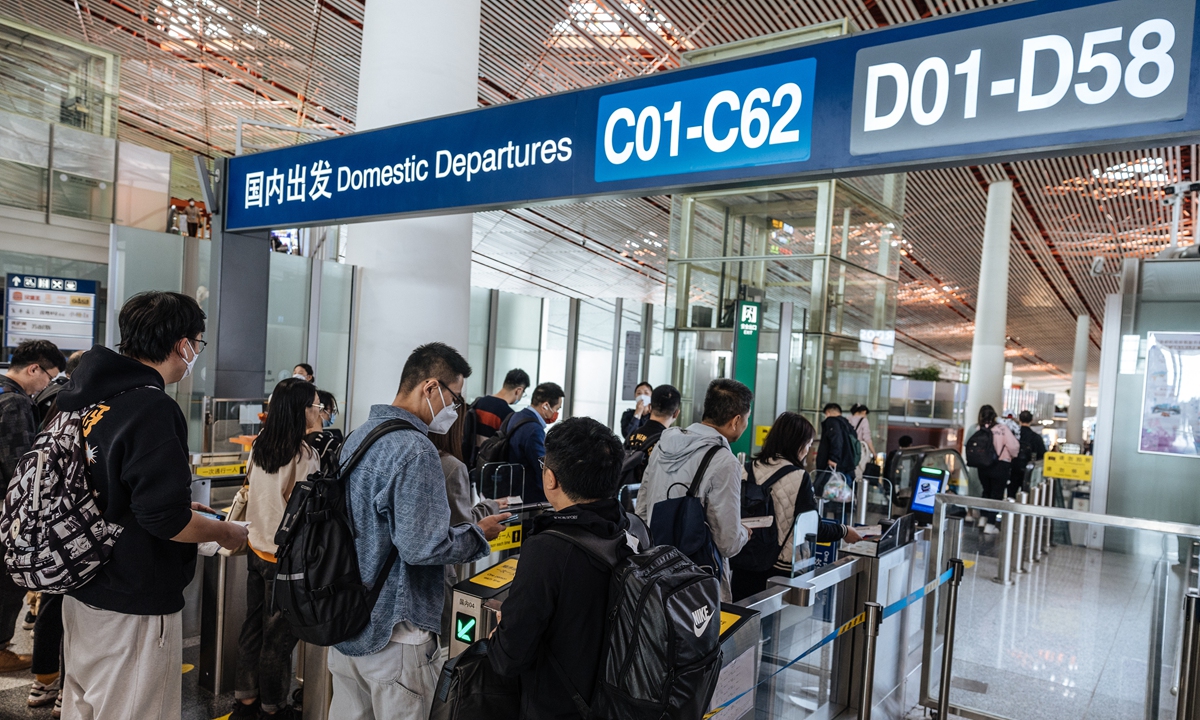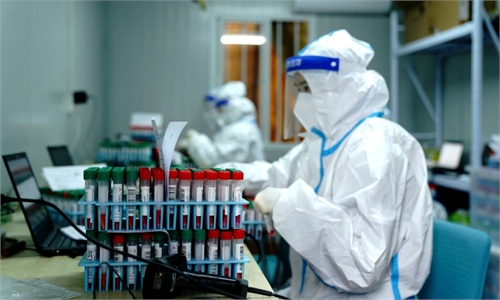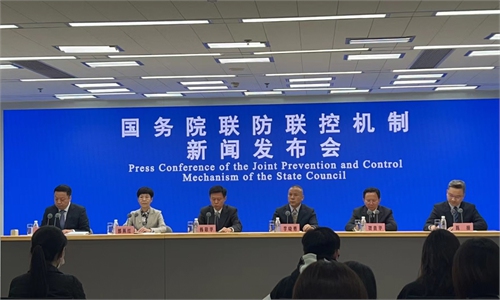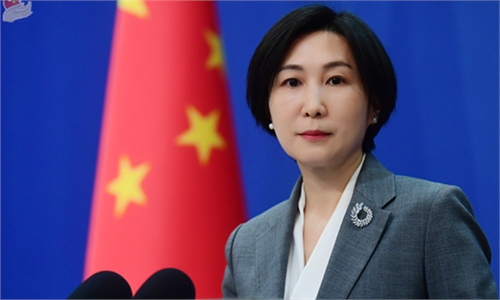Major outbreaks unlikely despite slight uptick in COVID cases: official
Health authorities brace for possible risks from May Day holiday rush

Travelers depart from the Beijing Capital International Airport on April 26, 2023 ahead of the May Day holidays. The airport will welcome or see off an average 166,000 passenger trips a day during the holidays. Photo: Li Hao/GT
Although a number of localities in China are witnessing small spikes in COVID-19 infections, a large-scale outbreak is unlikely, China's disease control officials said on Wednesday as there have been heated discussions over whether there might be a possible resurgence during the upcoming five-day May Day holidays.
As massive gatherings are expected during the upcoming May Day holidays, the first long holiday after the Chinese Lunar New Year since China downgraded its management of COVID-19 in January, authorities have urged the public to be cautious and instructed hospitals to be on high alert. The officials, however, dismissed the possibility of a large-scale infection.
The COVID-19 situation in China is stable. But new infections appear to be gradually increasing in some areas, this is partly due to the fading away of herd immunity, He Qinghua, an official from the National Administration of Disease Prevention and Control, said at a press conference on Wednesday, ruling out the possibility of a widespread outbreak.
He said that the number of COVID-19 cases in early April this year was at the lowest in China since the outbreak in December last year.
Recently, a heated discussion on COVID-19 infection erupted online as some netizens posted pictures of their positive antigen tests on Chinese social media, claiming they were "re-infected" with COVID-19.
A company in Beijing on Sunday began to survey whether its employees had been infected with COVID-19, and asked those who had contracted the virus to stay at home, the Global Times learned. Similarly, a primary school in South China's Guangdong Province is following a similar practice for teachers and students alike.
An employee who works in academic affairs office at a Chongqing university told the Global Times on Wednesday that a handful of her colleagues have been infected with COVID-19, but their symptoms are not severe.
He from the National Administration for Disease Control and Prevention said since the middle of this month, the daily number of new positive cases and their proportion in fever clinic visits have been rising a bit.
The newly infected cases are mostly made up of people who have never been infected, whose immunity levels have decreased and who are immunocompromised, He said.
Wang Guangfa, a respiratory expert from Peking University First Hospital, told the Global Times that after a while, the number of people who are going to be re-infected with the coronavirus will keep going up, but will eventually go down, he added. "Summer is not conducive for the transmission of the virus. In addition, patients re-infected with coronavirus tend to have milder symptoms," said Wang, noting the growing number of cases won't have a palpable impact on society.
Yet Wang predicted a larger infection wave may probably come this winter, as the weather becomes colder and most people's immunity fades away.
Speaking at a forum last week, Zhang Wenhong, head of the infectious disease department at Huashan Hospital in Shanghai, also director of the National Center for Infectious Diseases, said if the coronavirus mutates, some people will be re-infected after six months. But the scale will not be huge. However, if the mutation manages to break the immune barrier formed during the previous wave, there will be an infection.
Currently, health authorities haven't discovered evidence showing that the new variant XBB.1.16 - referred to as "Arcturus," can lead to severe cases or even death, according to Chen Chao, an expert from the Chinese Center for Disease Control and Prevention. Chen said China has detected 57 carriers of XBB.1.16 and its sub-variants.
Manageable risk
A travel frenzy is expected during the upcoming five-day May Day holidays, the first long holiday after the Chinese Lunar New Year since China downgraded its management of COVID-19 in early January.
Large gatherings are expected during the upcoming May Day holidays and may increase the risk of spreading of the coronavirus, but the mass movement is unlikely to lead to a large-scale outbreak, He Qinghua said at the conference. Officials said they will keep monitoring the COVID-19 infection in China and the mutation of the coronavirus.
China will keep emergency clinic departments open 24/7 during the May Day holidays and add personnel to meet any increase in demand due to spike in infections. The official also asked the public to strengthen self monitoring during travel.
Starting April 29, travelers entering China will no longer be required to provide a negative PCR test result, said Chinese Foreign Ministry spokesperson Mao Ning on Tuesday, noting that travelers can instead show rapid antigen test results while airlines won't be required to check pre-departure testing results.
Li Tongzeng, chief physician in the respiratory and infectious diseases department at Beijing You'an Hospital, told the Global Times that removing the COVID-19 nucleic acid test requirement may also lead to increase of cases and imported variants, but the risk is manageable, as the epidemic is at low prevalence in most parts of the world, and China has enough medical resources and a higher vaccination rate to deal with a possible increase of local infections caused by imported cases.
In order to improve the public's immunity levels, governments across the nation have continued to push forward vaccination work. For example, the government in Beijing rolled out plans to vaccinate mainly those who haven't completed vaccination.
On the forum, Zhang called for stockpiling of small molecule antivirals of COVID-19, and at the same time establishing a model that could treat COVID-19 patients within 48 hours. "I believe constant monitoring, warnings and stockpiling of medicines will enable us to respond rapidly to any mutations and run faster than the next infection," said Zhang.
Wang said the utmost important task now is for the elderly to get vaccinated, as they are the most vulnerable group. "But the massive infection last year is unlikely to occur again."



